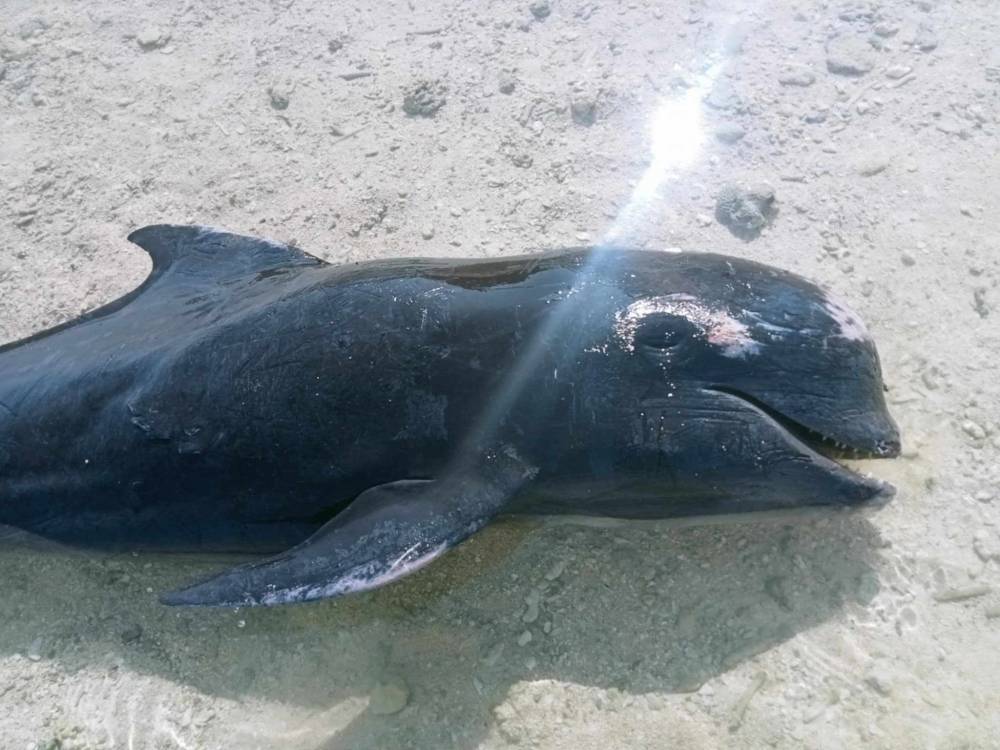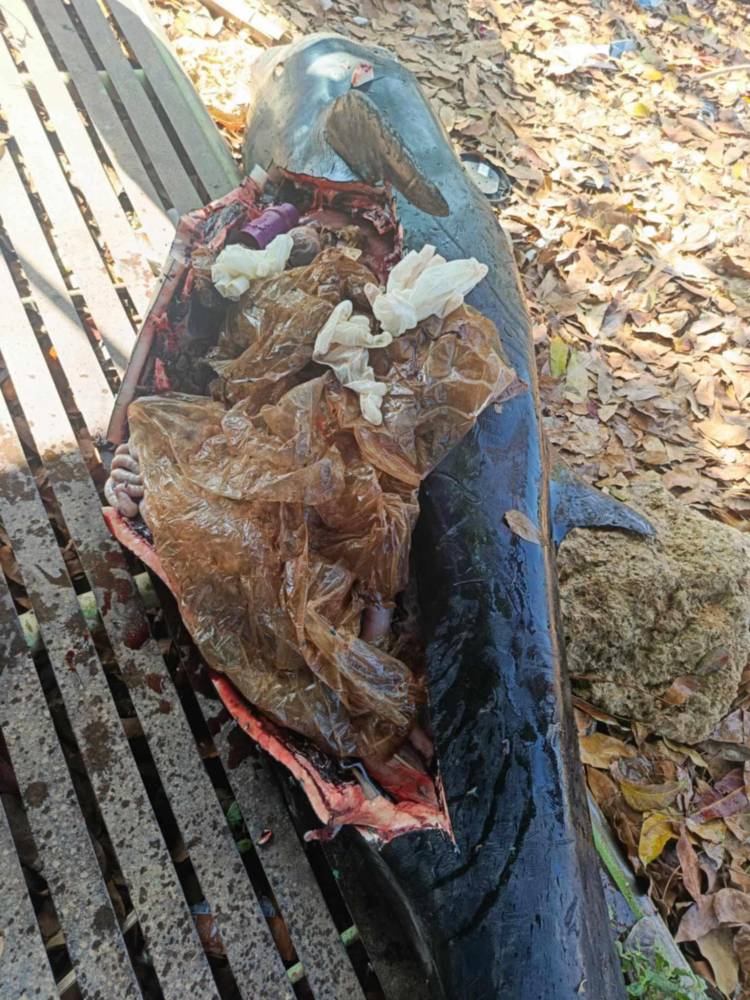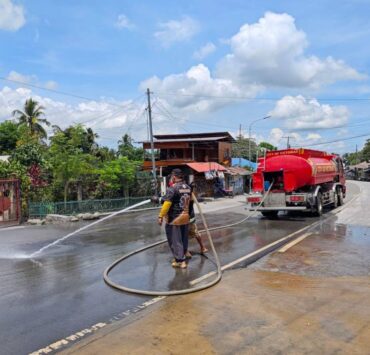Dolphin dies after ingesting plastic in Pangasinan waters

DAGUPAN CITY—A short-finned pilot whale (Globicephala macrorhynchus) became the latest marine mammal to fall victim to plastic pollution after it ingested nearly a kilo of plastic waste, including grocery bags and shards of a hard plastic container, according to the Bureau of Fisheries and Aquatic Resources in the Ilocos region.
The marine animal, a species of dolphin, was discovered early Tuesday morning by fisher folk in the waters off the villages of Patar and Ilog Malino in Bolinao, Pangasinan.
Hasmin Chogsayan, BFAR veterinarian, said the dolphin was weak and was struggling to swim when it was found by the fishers.
“It died shortly after 8 a.m. It was initially set for burial at the Bolinao Materials Recovery Facility, but I requested a necropsy due to its severely emaciated condition,” Chogsayan told the Inquirer on Tuesday.
The necropsy, conducted onsite by Alaminos City veterinarian Arnold dela Cruz and his team, discovered that the dolphin’s stomach was packed with debris.
“The plastic [waste were] already blackened, suggesting these had been lodged in the stomach for a long time,” Chogsayan said.

‘Fatal obstruction’
She added: “[The cause of death] was likely starving, [the dolphin] unable to absorb nutrients, and the hard plastic container may have been the final, fatal obstruction.”
Chogsayan noted that marine mammals do not chew their food as they swallow it whole. Floating plastic waste, such as grocery bags or fish feed packaging, can easily be mistaken for prey like squid or jellyfish.
“Once [ingested], plastic causes internal injuries and blocks the digestive system. It tricks the [dolphin’s] brain into thinking [it] is full, so it stops feeding—eventually leading to starvation,” she said.
According to Chogsayan, the short-finned pilot whale was likely already weakened by the accumulated plastic in its system and simply swallowed the nearest item, presumably the piece of hard plastic.
“It’s heartbreaking. Our oceans have become dumping grounds for human waste, and marine life is paying the price,” she said.
Since the beginning of the year, six dolphins have been found stranded along the shores of the Ilocos region. One was already dead when found, three died during treatment, and only two were successfully released back into the wild.
The BFAR has urged fish cage operators and coastal communities to properly dispose of plastic food packaging and refrain from throwing their trash into the sea, as marine mammals often mistake these for food.
“This is not just an isolated incident; it’s a wake-up call. Every piece of plastic we carelessly discard has the potential to kill,” Chogsayan said.”

















